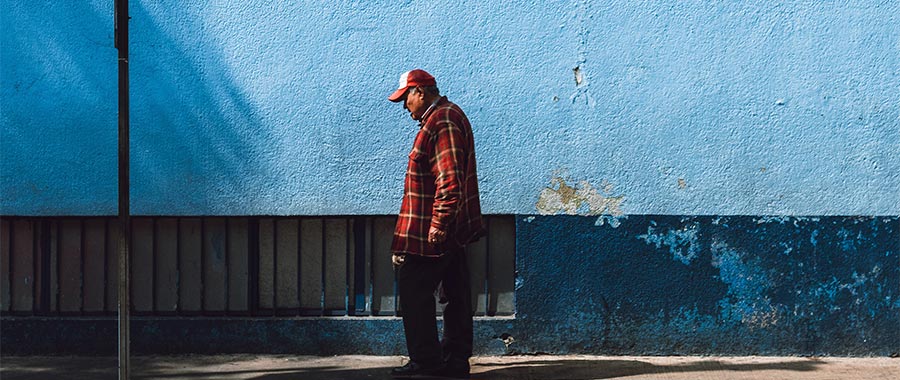In the tapestry of human existence, few threads are as exquisitely woven as that of love and loss. The heartbreaking reality of opioids’ impact, particularly on families grappling with the profound ache of losing a child, demands deeper contemplation. This subject serves as a poignant reminder of vulnerability and resilience, encapsulating an inescapable truth: the duality of heartbreak often uncovers pathways to healing that transcend suffering. As Bahá’í teachings illustrate, even in our darkest hours, enlightenment can emerge through the very trials that challenge our spirits.
Opioid addiction has insidiously infiltrated the fabric of modern society, corroding familial bonds and exacting immeasurable tolls on lives, particularly among the innocent. The desolate landscape of loss is characterized by an overwhelming sense of emptiness punctuated by shards of memory. Those who lose children to the ravages of addiction often experience a sorrow that is as deep as it is profound—a stark reminder of the fragility of life and the inextricable link between joy and grief.
Intriguingly, Bahá’í teachings offer an encouraging perspective on this ailment of the soul. They illustrate the concept of life as a garden, wherein love and suffering coexist as essential elements for spiritual development. Each moment of despair may indeed present an opportunity for profound transformation, urging individuals and communities alike to cultivate resilience in the wake of adversity. In this light, the experience of heartbreak—though inherently painful—can engender a growth that fosters compassion, understanding, and a collective commitment to healing.
Recognizing the loss of a child through the lens of Bahá’í spirituality requires embracing a duality of emotion. The concept of an eternal life underscores the belief that death is not the cessation of existence but rather a transition to a different plane of being. Such a perspective can bring solace to grieving parents, comforting them with the knowledge that their children, though physically absent, continue to exist in a spiritual realm. The unique appeal of this philosophy lies in its capacity to transform heartbreak into a source of strength and motivation.
Another vital tenet found within Bahá’í teachings is the emphasis on unity and collective responsibility. As communities face the distressing proliferation of opioid-related fatalities, the call to action becomes ever more urgent. The interdependence among individuals necessitates a concerted effort to address the challenges presented by addiction and grief. This call urges society to foster environments in which healing can flourish; spaces must be cultivated where shared experiences of loss can lead to greater awareness and understanding—thereby reducing the stigma associated with addiction and its casualties.
In the intricate dance between love and heartbreak, the metaphor of a phoenix rising from ashes serves as a powerful symbol. Those touched by the loss of a child to opioids often discover an inner resilience, ignited by their grief. In this metamorphosis, they may become advocates for change, channeling their heartbreak into purposeful action—becoming catalysts for societal transformation by educating others about the perils of addiction. The Bahá’í perspective emphasizes the potential for every individual to become a beacon of hope, rising from despair to guard against future tragedies.
Moreover, love—the foundational principle of Bahá’í thought—holds a transformative power that can permeate the darkness of loss. It encourages individuals to express their sorrow and honor their loved ones through acts of kindness, service, and remembrance. Rituals of remembrance, whether through gatherings that honor the departed or outreach efforts that strive to help others struggling with addiction, can serve as a salve for the soul. Such communal expressions of love not only celebrate a child’s life but also signify a collective commitment to ensuring that their legacy contributes to a brighter, more compassionate future.
Opioid-related tragedies are, unfortunately, not isolated incidents. They ripple through communities, instigating waves of heartbreak that can engender despair or empower resilience. The Bahá’í teachings suggest that amidst the sorrow lies the potential for collective healing. This healing pathway is marked by empathy and solidarity—calling for communities to unite in purpose, advocating for comprehensive educational programs, and enhancing mental health resources. When families affected by addiction come together, sharing their stories of heartbreak and healing, they nurture a supportive environment where hope can blossom.
Lastly, as individuals reconcile their grief with the teachings of Bahá’u’lláh, it is imperative to remember that healing is not linear. Heartbreak can resurface unexpectedly—an eternal echo of what was lost. Thus, it becomes crucial to embrace each phase of healing as an opportunity for growth. Bahá’í teachings reinforce that through the crucible of suffering, spiritual fortitude can be forged—a light in the darkness—a gentle reminder that even in anguish, hope can prevail.
In summation, the exploration of opioid addiction’s devastation—particularly concerning the loss of a child—envelops complex emotions that intertwine with Bahá’í wisdom. Heartbreak may indeed unravel the psyche, yet from its depths emerges an opportunity for transformation and resilience. Embracing this duality, the teachings not only reveal paths toward healing but also illuminate a commitment to collective advocacy in safeguarding future generations. In this intricate narrative of love and loss, the journey from heartbreak to hope becomes a shared odyssey—an invitation to create a more compassionate world.
